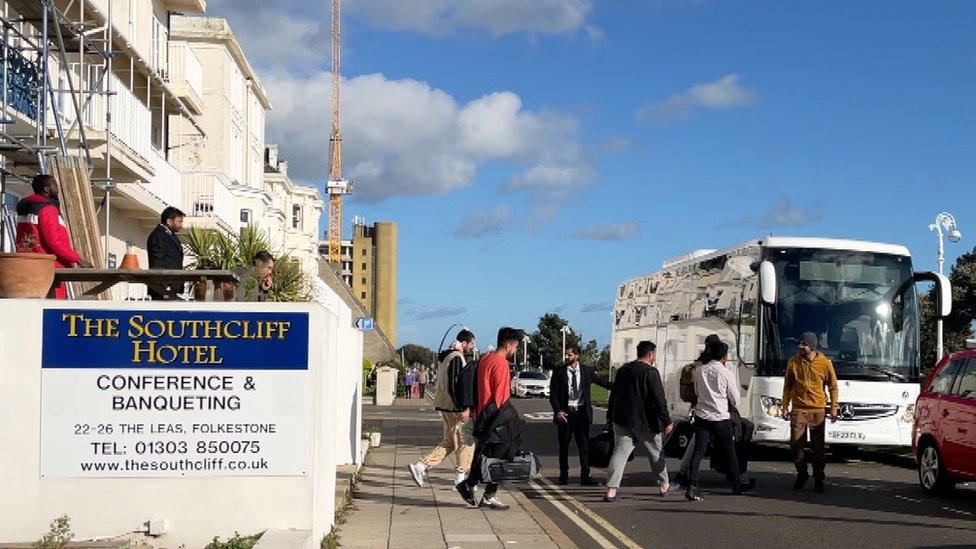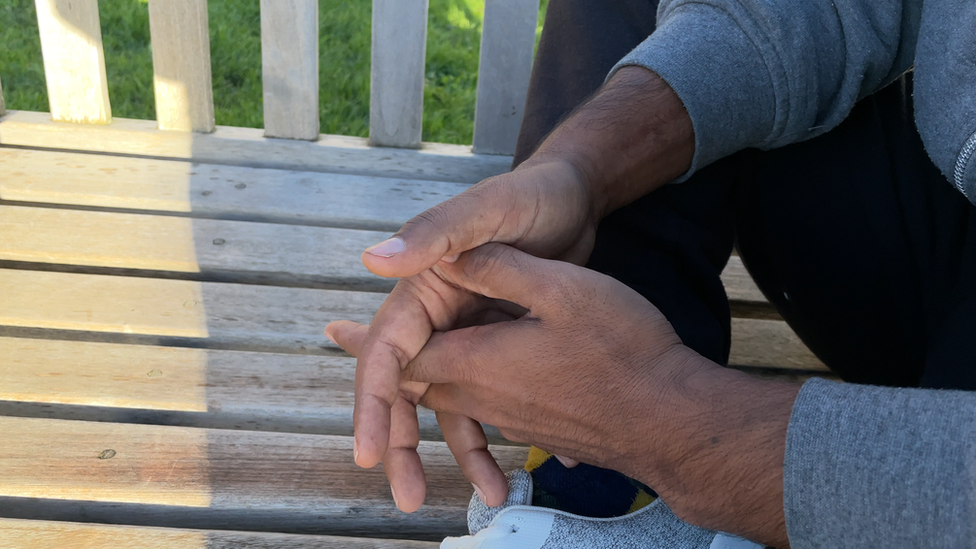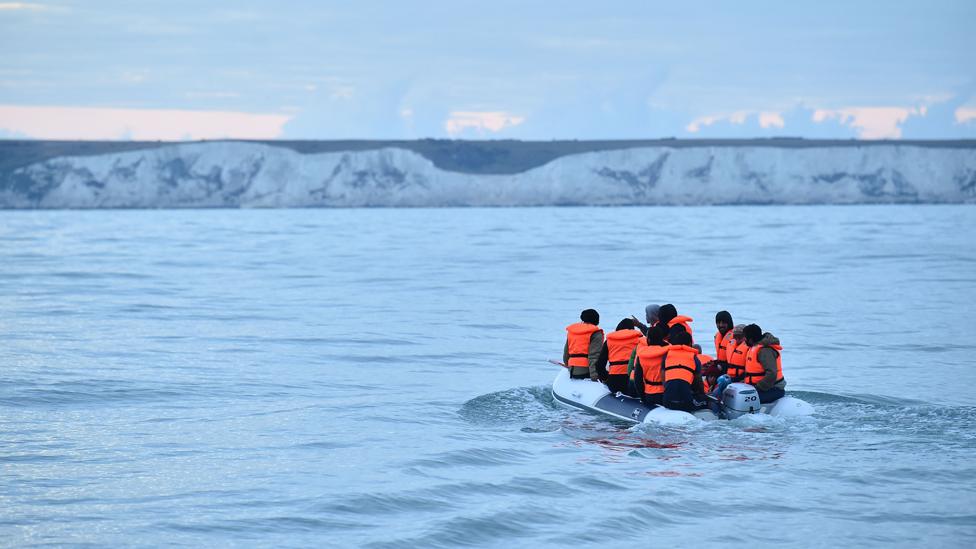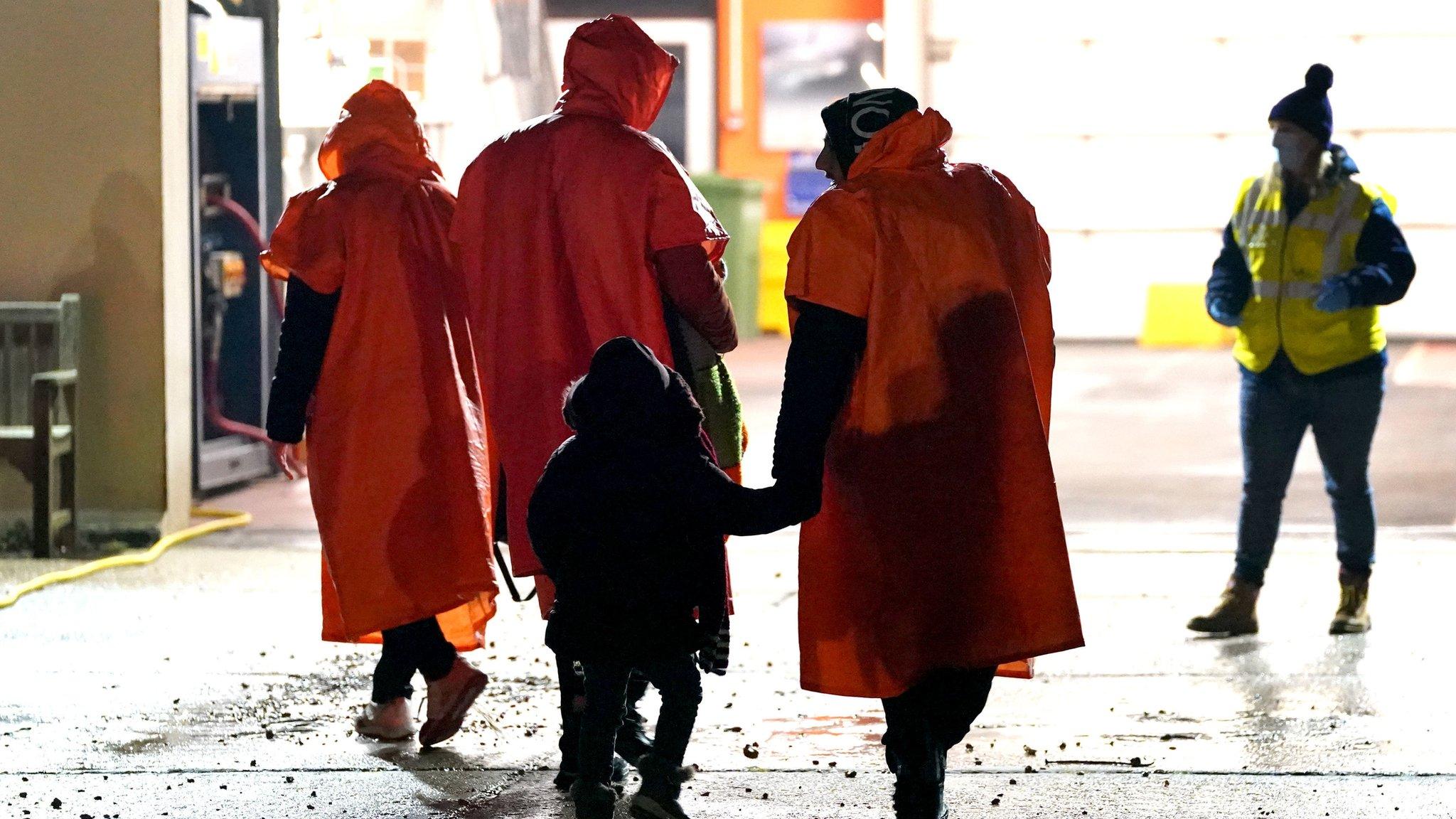Migrants moved from one hotel to another, BBC finds
- Published

A coachload of asylum seekers was sent from a hotel in Folkestone, to another in central London
Charities have criticised the "nonsensical" closure of migrant hotels after the BBC found many residents were being moved from one hotel to another.
The government has promised to shut 50 asylum hotels by January.
BBC South East followed the closure of one of the first, in Folkestone, Kent, and found asylum seekers were bussed to other hotels in London and Bournemouth.
The Home Office said it was working with contractors and councils to limit the impacts of the closures.
It declined to answer questions about specific sites, but said it aimed to end the use of hotels, which cost UK taxpayers £8.2m a day.
The BBC has been told that asylum seekers at a recently closed hotel in Worcestershire and another in Suffolk have also been moved to other hotels.

'I am not happy here'
Ahmadi, who fled Afghanistan after the Taliban takeover, moved into a seafront hotel in Folkestone after a traumatic Channel crossing.
His boat fell apart and he plunged into the water on 14 December 2022.
"I was in the water for 25 minutes," he said. "It was very cold. We [were] shouting help, help, help."
Four people have been confirmed dead, four are missing and 39 were rescued.
He was pulled from the water by a passing fishing boat, while others were rescued by the RNLI.
Watch: Migrants rescued from sinking boat in English Channel
Many of the survivors moved to the same hotel, where, Ahmadi said, they formed a strong bond. But on 7 November, the majority of the 60 men at the hotel were sent by coach to a 400-room hotel in central London.
Ahmadi and five others were sent to a hotel in Bournemouth.
"I am not happy here," he said from his new room, which he shares with a stranger.
He said he used to go to school in Folkestone, but since being moved he spends all day in the hotel.
"I don't do anything."

The use of hotels has faced criticism from refugee charities, who say it is unsuitable accommodation, as well as protests from far-right groups.
It has become more widespread due to a backlog of undecided asylum claims.
Migrants are legally entitled to housing while waiting for a decision on asylum applications, as they are unable to work or claim benefits.
Kent Refugee Action Network, a charity that has been supporting asylum seekers at the Folkestone hotel, said many had "started to rebuild their lives" since arriving last year.
Chief executive Razia Shariff said: "Moving them from one hotel to another - especially if it is out of the area - does not deliver on the government's target of reducing the costs, nor does it help the young men in their transition and integration to life in the UK."
Alex Kempton, of The Refugee Buddy Project, said it was "ridiculous and nonsensical to really disrupt and turn upside down these people's lives just to move them to another hotel".

Ahmadi says he was a soldier in the Afghan National Army before the Taliban takeover
Asylum seekers in other parts of the country have faced a similar experience.
In Bromsgrove, Worcestershire, a local community group that supports asylum seekers said a hotel housing about 80 men closed in early November.
Bromsgrove & District Asylum Seeker Support said the majority had been moved to other hotels in the West Midlands, while "a few men" had gone to shared houses.
In Ipswich, a hotel that was home to 200 asylum seekers closed on 24 November, with some "moved to another hotel in a much more remote location", Suffolk Refugee Support said.
Conservative MP Tim Loughton, who sits on the Home Affairs Committee, said the government was reducing the asylum backlog and cutting the use of hotels.
Asked about the fact that some migrants were being moved from one hotel to another, he said there were towns with "far too great a concentration of asylum seekers and a lot of hotels being used, so it's right to take the pressure off some of those towns".
However, he added: "The direction of travel is to reduce the number of hotels that are being used, and to find other suitable accommodation."
He said the government was "solving the problem by reducing the number of people in hotels and improving the [asylum] processing times - not good enough yet, but it's going in the right direction."

Follow BBC South East on Facebook, external, on X, external, and on Instagram, external. Send your story ideas to southeasttoday@bbc.co.uk, external.
- Published25 October 2023

- Published25 October 2023
